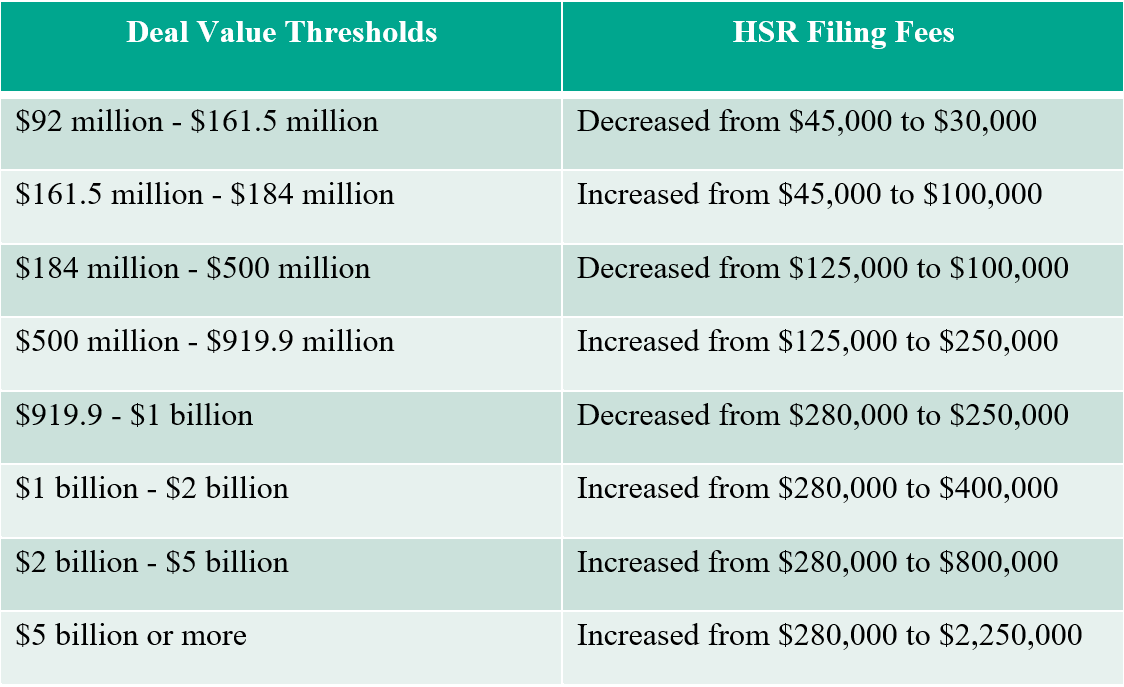This week, the American Bar Association’s Antitrust Law Section kicked off its annual Spring Meeting in Washington, DC, which features updates from the antitrust enforcers and substantive discussions on today’s most pressing antitrust issues. In this post, we share key takeaways from the first day of the Spring Meeting.
Agencies Continue to Be Hostile to M&A: Republican Federal Trade Commission (FTC) Commissioners Noah Phillips and Christine Wilson emphasized that the prevailing view under Democratic leadership at the antitrust agencies is that mergers provide no value and only carry costs.
- Progressive leadership wants to “throw sand in the gears” to prevent deals from being proposed altogether. Recent policy changes are aimed at creating uncertainty, heightening risk and raising the transaction costs of doing deals to slow the pace of M&A activity.
- Despite this, there was a precipitous drop in the number of FTC merger enforcement actions in the final year of the Trump administration (31) compared to the first year of the Biden administration (12).
- There is no indication that early termination for Hart-Scott-Rodino (HSR) pre-merger notification filings will be reinstated.
- “Close At Your Peril” letters are another tactic the agencies are using to heighten deal risk and deter parties from pursuing or consummating transactions, even though the antitrust agencies have always had the authority to investigate and challenge consummated transactions.
- Many panelists commented on the lack of transparency between agency staff and merging parties on recent transactions. If the lack of transparency persists, it may create due process issues and problems for timing agreements that merging parties typically negotiate with staff.
- The antitrust agencies are increasingly skeptical of the efficacy of structural and behavioral remedies to resolve competition concerns regarding a transaction. The Department of Justice (DOJ) Antitrust Division’s Principal Deputy Assistant Attorney General Doha Mekki said merging parties should expect the DOJ to reject “risky settlements” more often and instead seek to block transactions outright. Mekki said literature has shown that many merger settlements failed to protect competition.
Increased Antitrust Litigation Is on the Horizon: DOJ officials said companies should expect an increase in antitrust litigation on both civil and criminal matters.
- The DOJ Antitrust Division has more cases in active litigation than it has had at any time in recent history. It currently has six active litigations involving civil matters and 21 ongoing litigations involving criminal matters.
- The Antitrust Division is not considering cost as a gating factor for bringing new cases. Instead, it is bringing cases where it deems necessary to uphold the law and preserve competition. The DOJ is hiring more attorneys and using shared DOJ resources to support the increased rate of litigation.
- The DOJ is also seeking faster access to the courts. Mekki indicated that in cases where potential anticompetitive harm resulting from a transaction is clear, the agency may file suit while an investigation remains pending and before merging parties have certified substantial compliance.
Updated Merger Guidelines Are Coming: Officials from both the FTC and [...]
Continue Reading
read more

 Subscribe
Subscribe

